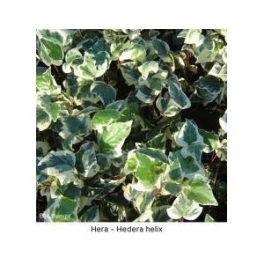ENGLISH IVY
Hedera helix
leafs, 250g
The ivy leaf is the foliage of the ivy plant. Ivy is a name applied to any plant that trails or climbs, particularly those that are cultivated. The more popular designation of the ivy plant is Hedera helix or the so-called English ivy. Hedera helix belongs to Araliaceae family, making it a relation to the herb, ginseng.
Woody and evergreen, the English ivy is native to Europe and temperate Asia. It is a usually sterile vine whose berries contain the poisonous principle hederin. Considered as the most popular house and wall vine, the Engish ivy is grown in numerous varieties.
The Boston or Japanese ivy is known as Parthenocissus tricuspidata and is most often found in Japan or China. The American ivy or Virginia creeper is called the P. quinquefolia of North America. Several other subspecies are found scattered in parts in Europe where they are said to prefer growing in old ruins and in Greece, where it is associated with the god Bacchus and various pagan religions.
Health Benefits
In America, the ivy leaf plant is found mostly creeping on garden walls and yards. But despite its unassuming habitat, the ivy leaf plant actually has long history in traditional herbal lore. In Europe, where it was first cultivated, the shiny, dark green ivy leaf was traditionally used for colds. Extracts made form ivy leaf act as an herbal decongestant, fighting against the more uncomfortable symptoms of colds or flu, such as stuffiness, swelling, and congestion. It was also used to fight fever by inducing sweat and control parasites.
The ivy leaf is supposed to prevent someone from getting drunk due to too much intake of wine. This belief arose from the Ancient Greek legend explaining why the wine god Bacchus always wore an ivy wreath around his head. In accordance with this story, ivy leaf was once bruised and simmered in the wine to keep sober while enjoying the taste of wine. It’s not clear however whether this worked.
The ivy leaf has other uses aside from wine-tasting. And these uses are backed with scientific evidence to support them. Numerous scientists conducted test-tube studies on ivy leaf extract and the results indicated that this herb has anti-bacterial, anti-parasitic, and pain-relieving properties. Human testing to see whether this works on humans is at hand.
Several decades ago, scientists discovered high concentrations of substances in ivy leaf that make it’s a potential decongestant for colds. These substances are called glycosidic saponins. These compounds are bitter and irritating to the mouth, triggering a cough that aids in removing mucus from the lungs, throat, and other areas. As a result, glycosidic saponins in ivy leaf extract can help clear cough and congestion.
The ivy leaf is most widely used today as a treatment for respiratory tract congestion. Commission E, a prestigious medical group in Germany approved ivy leaf extract as an herbal decongestant as well as treatment for inflammation-related lung (bronchial) condition.
Aside from treating respiratory-related conditions, ivy leaf extract was long thought to be effective in treating vein-related circulation disorders. They may be used to relieve varicose veins and symptoms such as aching and a sensation of heaviness in the legs. Recent findings however showed that ivy leaf is ineffective for these types of disorders.
Package with 250g leafs
 Maximize
Maximize







































